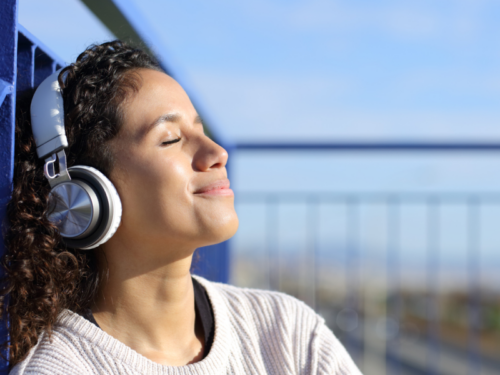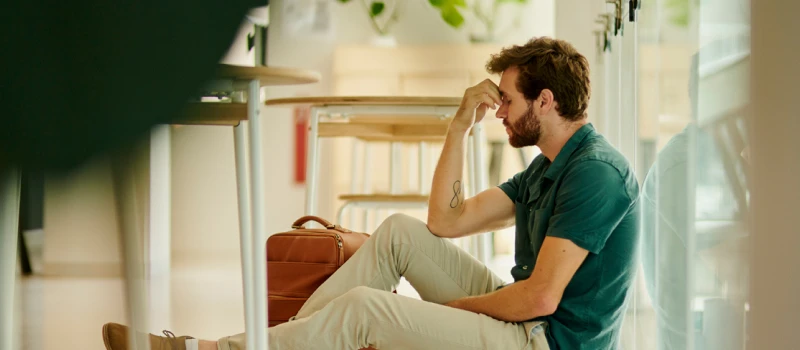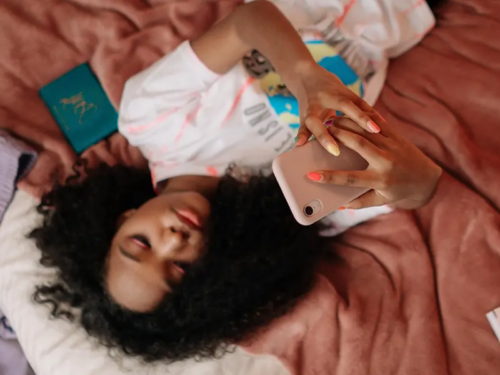
Table of Contents
Is It Nerves or Do You Have Situational Anxiety?

Written By: Sarah duRivage-Jacobs

Clinically Reviewed By: Dr. Don Gasparini
Updated: December 15, 2023
6 min.
Anxiety symptoms that recurrently pop up during certain situations may be a sign of situational anxiety—a relatively common phenomenon that’s sometimes associated with clinical anxiety disorders.
Learn more about our Clinical Review Process
Table of Contents
Your heart’s racing, your face feels hot, and you can’t stop your brain from worrying. Sound familiar? Those are just some of the symptoms that come with anxiety, a common emotion designed to protect us from danger. But, for many of us, anxiety also comes up when there’s no perceived threat—sometimes tensions, worried thoughts, and physical sensations arise during specific situations, also known as situational anxiety. Below, we delve into how situational anxiety compares to anxiety disorders, how people who experience situational anxiety can better cope, and when mental health support might be helpful.

You can learn to manage anxiety
We offer virtual mental health treatment personalized to your needs.
What are the causes of situational anxiety?
In short, situations that are unknown, uncomfortable, or otherwise upsetting may cause situational anxiety. Some people may experience situational anxiety when extenuating circumstances have arisen in regular situations. For example, the COVID-19 pandemic made socializing anxiety-producing out of fear of infection. Others may have situational anxiety that’s more anticipatory, like stress before a doctor’s visit due to intense fear of negative health findings. (Anticipatory anxiety about panic attacks is a common aspect of panic disorder.) Below is a list of some triggers of situational anxiety, particularly common among young people.
Hanging out with new friends
You’re about to meet up with new coworkers for the first time. As you show up at the restaurant, you feel your heart rate pick up, and your breathing becomes more shallow. The same thing happens any time you meet new people because you’re often nervous you’ll say the wrong thing or leave a bad first impression.
Going on a first date
Nerves before a first date happen to almost anyone, but you tend to feel especially anxious about them. You often experience sweaty palms and find yourself tripping over your words—even though you’re very excited to be there.
Having your first day of class
As school starts up again every semester, shifting environments after spending time away stresses you out. You’re always filled with dread until you’re able to see what teachers you have and who’s in your classes. You can’t help but be anxious until you know you’ll have a decent semester.
Taking a test
Even when you feel like you studied enough for the test, you can feel yourself essentially freezing when you sit down to take it. Your breathing feels rapid, and your palms are clamming up. The pressure of testing really gets to you.
Public speaking
Whenever you get up to speak in front of a group of people, whether it’s presenting at work, in class, or making a speech at an event, you start feeling your voice and breath get caught in your throat. You’re sure everyone can hear the uncertainty coming out through your stilted speech.
Flying in an airplane
You’re scared of flying and feel a lot of anxiety from wheels up to wheels down. During any flight, you close your eyes and squeeze onto your armrests. If there’s turbulence or the plane jerks even just a little bit, it’s extremely difficult not to catastrophize. You only feel safe when you’ve landed at your destination.
What is the difference between situational anxiety and generalized anxiety disorder?
Generalized anxiety disorder
Situational anxiety
A clinical diagnosis marked by high levels of anxiety about everyday situations and events, which occurs on most days for at least six months and interferes with your daily life.
Symptoms of anxiety that come up in specific situations. Not a clinical diagnosis, though it can be a part of one.
Whether you’re experiencing situational anxiety or an anxiety disorder like generalized anxiety disorder depends on your anxiety symptoms.
With situational anxiety, symptoms of anxiety only come up when you’re in specific situations. Situational anxiety may or may not cause longer-lasting issues than the isolated event. Generalized anxiety disorder in adolescence is marked by high levels of anxiety about everyday situations and events, which occurs on most days for at least six months and interferes with your daily life.
Most people experience some degree of situational anxiety, but generalized anxiety disorder is more rare. In essence, situational anxiety isn’t a clinical anxiety disorder in and of itself. It may, though, become part of an anxiety disorder if it causes issues in your relationships, daily life, or mental or physical health.
Some common anxiety disorders among young people include social anxiety disorder (sometimes called social phobia), separation anxiety disorder, and anxiety disorders related to a specific phobia or phobias.
How to deal with situational anxiety in the moment
Before entering into a situation you know gives you anxiety, you have the ability to make choices that will make you feel more comfortable. For example, if you experience anxiety when you’re in a social situation, you could show up early to get acquainted with the space and reduce some of the unknown. If flying makes you nervous, you can bring a book or pre-download a few podcast episodes to distract yourself in the air. Even if you haven’t been able to prepare in advance, there are coping strategies you can call on for in-the-moment relief from anxiety. Here are a few we recommend.
Cool down
Cooling down your temperature can help you decrease a racing heart rate in the midst of situational anxiety. Consider going outside if the weather is cooler than your inside temperature, splashing your face with cold water, taking a colder shower than you normally would, or rubbing your hands or face with an ice cube.
Practice paced breathing
Paced breathing can also help decrease heart rate as well as other physical symptoms of anxiety, like a flushed face and sweating. To practice paced breathing, take 1-2 minutes to breathe from your abdomen and in through your nose for four counts, breathe out of your mouth for six, and then repeat.
Relax your muscles
Progressive muscle relaxation can help you release tension and relax in your body during an anxious feeling or moment. If you’re seated, begin by becoming aware of the muscles at the top of your body and in your upper back. Tighten your muscles for five seconds, and then let go. Do the same with the arms, abdominal, and lower-back muscles, and then through to your pelvis, thighs, upper legs, and calves.

Do a quick meditation
Another way to drop into your body and out of the anxiety is to do a short meditation that doesn’t require anything but you in a comfortable position and your brain. While seated, perform a 3-minute body scan from the top of the head down through your toes. Breathe in through your nose, out through your mouth, and then close your eyes. Check-in with how you’re feeling in each part of your body and stay present with those sensations as you internally make your way from top to bottom.
Situational anxiety treatment for teens
If anxiety of any kind is interfering with you or your teen’s life, psychotherapy and medication (when recommended) can help with managing those symptoms and gaining back some of that control. Here are some examples of evidence-based anxiety treatments for young people.
Cognitive behavioral therapy
There’s no one-size-fits-all therapeutic approach to anxiety treatment, but cognitive behavioral therapy (CBT) is a common recommendation for people experiencing disruptive patterns of anxious thoughts. The therapy centers on naming and reframing the negative thought, or multiple negative thoughts, so they no longer keep us from doing what we want in life.
Prescription medications
According to the American Psychiatric Association, in some cases, medical providers may suggest taking antidepressants (e.g., selective serotonin reuptake inhibitors or serotonin and norepinephrine reuptake inhibitors), anti-anxiety medication (e.g., benzodiazepines Xanax or Ativan), and sometimes beta-blockers (off-label use for the heart medication) in addition to psychotherapy to help reduce the intensity of symptoms of anxiety.

Anxiety support for teens at Charlie Health
If situational anxiety symptoms are impacting your mental health, Charlie Health is here to help. Charlie Health’s virtual Intensive Outpatient Program (IOP) provides more than once-weekly mental health treatment for teens and adults with serious mental health conditions, including intense anxiety, social phobia, panic disorder, and more. Our expert clinicians incorporate evidence-based therapies, like cognitive behavioral therapy, into individual counseling, family therapy, and group sessions. With treatment, managing situational anxiety symptoms is possible. Fill out the form below or give us a call to start healing today.




